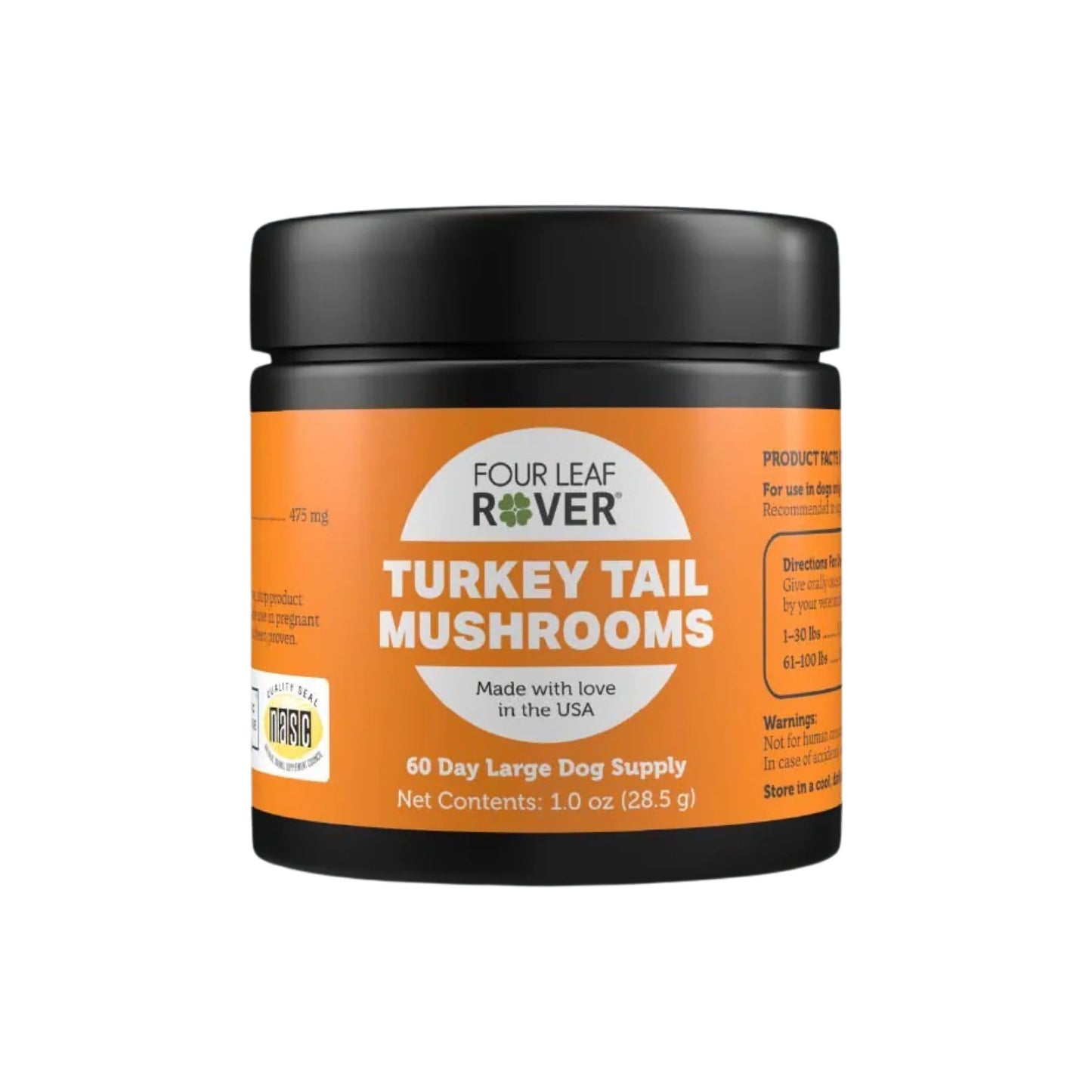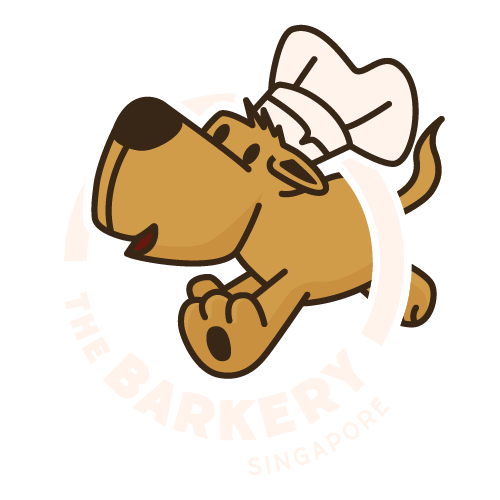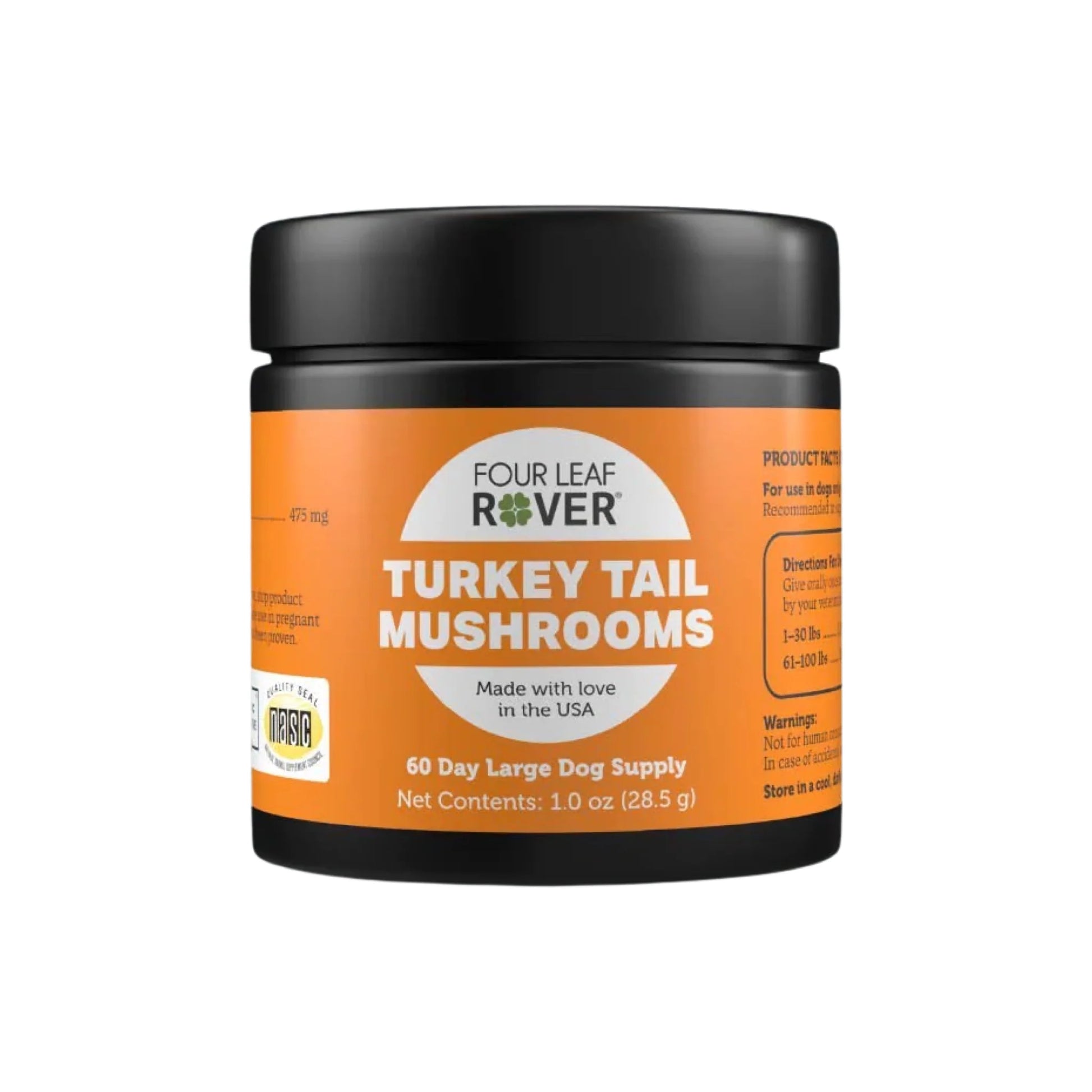1
/
of
1
Paws Avenue
Four Leaf Rover - Turkey Tail Mushroom Extract 1oz
Four Leaf Rover - Turkey Tail Mushroom Extract 1oz
Regular price
$40.00
Regular price
Sale price
$40.00
Unit price
/
per
Tax included.
Shipping calculated at checkout.
Couldn't load pickup availability
While other mushrooms products are mycelium (a lab-grown fungus that's only part of a mushroom), Four Leaf Rover Turkey Tail extract contains the fruiting body and the mycelium. Mycelium is grown on grains like oats, sorghum or rice, not on wood where mushrooms would grow in nature. Mycelium products contain significantly lower levels of valuable beta-glucan, the active medicinal compound in mushrooms. Your dog deserves Four Leaf Rover's REAL mushrooms ... grown the way nature intended and complete with all their health-boosting properties. Ingredients: Turkey tail is a mushroom that grows on dead logs all around the world. Its Latin name is Trametes versicolor or Coriolus versicolor. Versicolor means of many colors. And that’s because turkey tail has colored rings that look a lot like the tail of a turkey. In Japan, turkey tail is called kawaratake, which means cloud mushroom. There are quite a few strains of Trametes, but turkey tail in particular is of interest to scientists and herbalists. Turkey tail has been used in Chinese medicine for centuries to reduce phlegm, clear dampness, increase energy and boost the immune system. In traditional Chinese medicine, it’s called Yun Zhi. Mushrooms contain a fruiting body (the part of the mushroom you'd recognize) and mycelium, the part that grows underground or inside the plant. Think of the mycelium as the roots of the mushroom. Nearly all mushroom products are mycelium, not the actual mushroom. They're grown in a lab on sterilized grains (such as rice, sorghum or oats) and ground into a powder. If you're buying a mycelium product, you're not getting the beta-glucan rich content of the fruiting body. Beta-gulcans are the active compounds in mushrooms. Fruiting bodies are full spectrum and also offer more vitamins and minerals. You're not getting a real mushroom and your dog is not getting all of the health benefits. Medicinal Benefits Of Beta-glucans: Turkey tail mushrooms have two main medicinal components: Polysaccharide-K (PSK) and polysaccharide-P (PSP). They form part of the mushroom’s cell wall and they give the cell its structure. Both PSK and PSP are called beta-D-glucans. These beta-glucans can bind directly to receptors in immune cells … and trigger immune changes that can increase the activity of some immune cells, or restore a healthy immune response. The key activities on the immune system include: -Up-regulate immune function when the immune system is stressed by chronic illness, stress or cancer -Restore immune function in dogs with an auto-immune disease -Down-regulate the inflammatory immune response in over-active immune systems Beta-D-glucans can bind to and activate macrophages, which are the immune cells responsible for destroying bacteria, viruses, and invaders like cancer cells. Beta-glucans can also stimulate other immune cells, including natural killer (NK) cells and T-leukocytes, which are an important part of the adaptive immune system. Overall, beta-glucans have been shown to: -Activate immune cells -Increase antibody production -Reduce pro-inflammatory cytokines -Enhance the immune response to multiple cancers -Inhibit the spread of cancer cells (metastasis) Can I give my dog mushrooms more than once a day? If your dog doesn't have any health challenges, once a day should be enough. But if your dog is fighting an illness, you can give mushrooms twice daily. Can I give Turkey Tail with the Immunity mushroom blend? While the Immunity 7 mushroom blend contains Turkey Tail mushroom, you can add Turkey Tail once or twice daily for additional immune benefits. Directions For Use:
Give orally daily or as directed by your veterinarian.
| Body Weight | Amount Per Day | Daily Supply |
| 1-30 lbs | 1/16 tsp daily |
120 day supply |
|
31-60 lbs |
1/8 tsp daily |
60 day supply |
| 61-100 lbs | 1/4 tsp daily |
30 day supply |
| 101 + lbs | 1/2 tsp daily |
15 day supply |
Share


